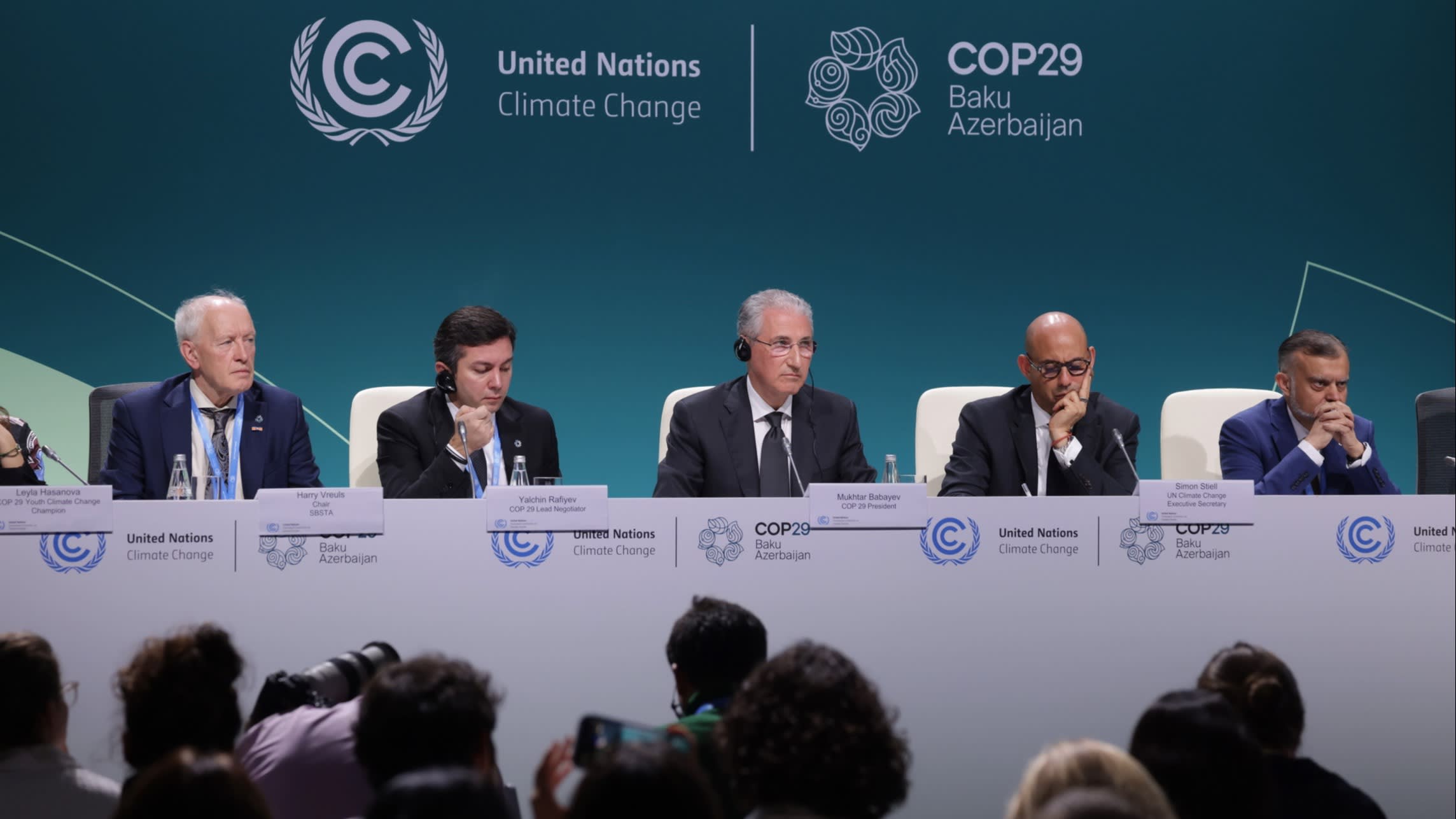The G20’s recent failure to explicitly advocate for transitioning away from fossil fuels in its leaders’ statement at the Rio summit has raised alarm among climate negotiators and advocates gathered at the UN COP29 climate summit in Baku. This omission, coinciding with Donald Trump’s election victory and his pro-oil stance, has heightened concerns about the global commitment to addressing the climate crisis.
A Missed Opportunity for Global Leadership
At COP28 in Dubai last year, nearly 200 nations committed to phasing out fossil fuels by 2050. This commitment was reiterated by the G7 in their communique earlier this year, creating expectations for the G20 to echo similar urgency. However, the G20 statement merely acknowledged the “ambitious and balanced outcome” of COP28, without directly mentioning the fossil fuel transition.
The omission sparked frustration among lead negotiators at COP29, who had been relying on the G20 to send a clear signal supporting the energy transition. Their task has become more challenging as they navigate the complexities of enforcing last year’s agreements in a climate of heightened political and economic divisions.
Political Setbacks and Blame Game
The statement’s lack of clarity has been attributed to several factors. A senior climate official suggested the exclusion resulted from inexperienced aides overlooking its significance, while some G7 representatives attempted but failed to reinstate the agreed-upon language. Criticism has also been directed at the Brazilian presidency for its handling of the statement and at G7 countries for their inadequate preparation.
Meanwhile, the Trump administration’s “drill, baby, drill” rhetoric and Argentina’s withdrawal of its negotiation team, led by Trump ally Javier Milei, further compounded challenges. The pro-oil and gas stance of Azerbaijan’s President Ilham Aliyev, the host of COP29, has also cast a shadow over the proceedings.
Implications for COP29
The absence of a direct commitment from the G20 has added complexity to COP29 negotiations, which were already fragile. A G7 negotiator noted that the uphill battle to solidify last year’s fossil fuel agreement has become steeper, as trust and momentum among participating nations waver.
UN climate chief Simon Stiell had previously emphasized the need for the G20 to demonstrate robust leadership in turbulent times. “International cooperation is the best and only chance humanity has to survive global heating,” he stressed. However, the Rio summit failed to deliver the decisive message many had hoped for, leaving COP29 negotiators with a more difficult path forward.
Climate Finance Takes Center Stage
Despite the setbacks, the G20 statement made progress in climate finance discussions by calling for reforms in global financial institutions and debt structuring to aid developing nations grappling with climate impacts. While this was a welcome development, the lack of a clear stance on fossil fuel transition undermined its impact.
Luca Bergamaschi, director of the climate think-tank ECCO, warned that without a defined pathway to phase out fossil fuels, the world remains on a precarious trajectory. The urgency of aligning policy with scientific recommendations has never been clearer, yet political inertia continues to hinder substantive progress.
A Critical Juncture
As COP29 enters its final week, negotiators face the daunting task of salvaging meaningful outcomes amidst political distractions and diluted commitments. The summit underscores the importance of coherent global leadership and the pressing need for decisive action to avert the catastrophic impacts of climate change.



